Catégories
Documents disponibles dans cette catégorie (192)
 Ajouter le résultat dans votre panier Affiner la recherche
Ajouter le résultat dans votre panier Affiner la recherche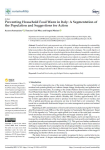
Article
Household food waste represents one of the main challenges threatening the sustainability of modern food systems globally. As is widely recognised, a deeper understanding of wasteful behaviour profiles is the starting point of designing interven[...]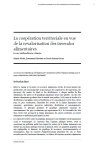
Article
La structuration locale d’une filière de revalorisation d’invendus se met en mouvement par une mise en réseau d’acteurs autour d’un projet de territoire à Nantes. En travaillant auprès des porteurs de projets, les chercheurs travaillent depuis d[...]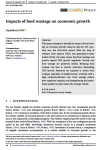
Article
This paper attempts to identify the impact of food wastage on economic growth using the data for 165 countries over the 2014?2018 period. With the help of ordinary least squares (OLS) and generalized linear model (GLM), the study shows that food[...]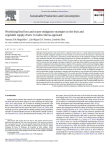
Article
Although reducing food loss and waste (FLW) is a global concern, there is a scarcity of literature devoted to the selection of suitable mitigation strategies. Previous studies are more focused on the disposal or valorisation of FLW, rather than [...]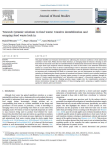
Article
This paper identifies and evaluates interventions for addressing the structural conditions in food systems that contribute to food waste. Within the food waste literature, an emerging strand of research is focusing on how food waste has structur[...]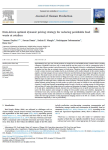
Article
Y. Kayikci ; S. Demir ; S.K. Mangla ; N. Subramanian ; B. Koc |Approximately forty per cent of fresh products are wasted in low and middle-income countries before reaching consumers. Perishable foods have only a certain shelf-life and they need to be sold for consumption before a specific date. When a produ[...]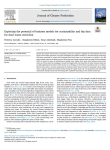
Article
F. Ciccullo ; M. Fabbri ; N. Abdelkafi ; M. Pero |Because the volume of food waste is increasing, actions are required to mitigate the environmental and social impact of food waste generation. This paper investigates the business models of 41 selected startups (technology and service providers)[...]
Article
M. Hamam ; M. D'Amico ; C. Zarbà ; G. Chinnici ; J. Toth |Eco-innovations that reduce the environmental effect of manufacturing and consumption are seen as critical components of sustainable development and a critical component of the transition to a circular economy. Food systems address the issue of [...]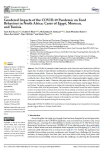
Article
T. Ben Hassen ; H. El Bilali ; M.S. Allahyari ; I.M. Kamel ; H. Ben Ismail ; H. Debbabi ; K. Sassi |The COVID-19 pandemic-related measures in the Near East and North Africa (NENA) region have resulted in many lifestyle modifications, including changes in diet and food buying patterns among adults. However, the pandemic has impacted women and m[...]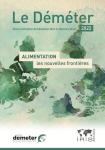
Série
S. Abis, dir. ; M. Brun, dir. | Paris [France] : Club Déméter | Déméter : Economie et Stratégies Agricoles, ISSN 1166-2115 | 2022Manger est au cœur de dynamiques politiques, géoéconomiques et environnementales. Cet acte du quotidien, essentiel pour certains et banal pour d’autres, est de plus en plus façonné par de nouveaux acteurs, des innovations inédites et des attente[...]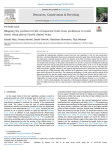
Article
K. Shoji ; S. Schudel ; D. Onwude ; C. Shrivastava ; T. Defraeye |Controlling the hygrothermal conditions around fresh fruit and vegetables is vital for their preservation. Therefore, cold chain stakeholders often measure temperature along the supply chain of fresh produce. However, the temperature is typicall[...]
E-Book
A. Thomas, coord. ; A. Alpha, coord. ; A. Barczak, coord. ; N. Zakhia-Rozis, coord. | Versailles [France] : Editions Quae | Synthèses | 2022Food and nutritional security refers to the challenge of providing sustainable, healthy and accessible food to all people. It has four interconnected dimensions: availability, access, utilization and stability. Tackling this tremendous challenge[...]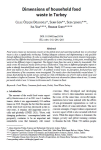
Article
C.O. Dölekoglu ; S. Gün ; S. Sengül ; H. Giray ; I. Var |Food waste creates an increasing concern at the global level and searching methods how to solve food waste is also a significantly increasing. Finding adequate solutions and implementing is only possible through defining the problem. To solve a [...]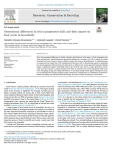
Article
There are generational differences in beliefs, attitudes, and behaviours with respect to food consumption and waste in households. Understanding these generational differences is necessary to be able to effectively combat household food waste. H[...]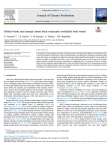
Article
A. Coudard ; E. Corbin ; J. de Koning ; A. Tukker ; J.M. Mogollón |Food products require significant amounts of energy and water throughout their lifecycle, yet humanity wastes 1.3e9 tons of food on a yearly basis. A large part of this waste occurs during the consumption (post-retail) phase of the food system a[...]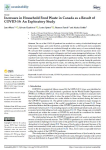
Article
J. Music ; S. Charlebois ; L. Spiteri ; S. Farrell ; A. Griffin |The era of the COVID-19 pandemic has resulted in a variety of individual lifestyle and behavioural changes, and could, therefore, potentially involve a shift towards more sustainable food systems. This research was conducted through an online su[...]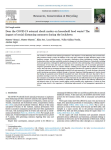
Article
M. Vittuari ; M. Masotti ; E. Iori ; L. Falasconi ; T. Gallina Toschi ; A. Segré |The COVID-19 outbreak forced national governments to the adoption of social distancing and movement limitation measures aimed to reduce the diffusion of the virus and to mitigate its highly disruptive impact on the healthcare systems. Reduced in[...]
Article
F. Vizzoto ; S. Tessitore ; F. Testa ; F. Iraldo |Food waste impacts the environment and the financial gains of foodservice establishments. Reducing it entails targeting the customers, as plate waste is the primary source of waste in these outlets. However, little is known about why some custom[...]
Article
Past research on food waste in foodservices has focused on restaurants in general and failed to examine how/if the ownership model of a restaurant business correlates with the approaches to food waste management adopted in-house. This study empl[...]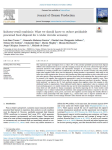
Article
L.R. Trento ; G.M. Pereira ; C.J. Chiappetta Jabbour ; N.O. Ndubisi ; V. Mani ; M. Hingley ; M. Borchardt ; J.U. Gustavo ; M. de Souza |This exploratory paper investigates how to reduce 25% of the potential perishable processed food disposal (PPFD) in the industrial-retail sector in a specific emerging economy The data were collected through 28 semi-structured interviews with su[...]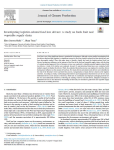
Article
Investigating logistics-related food loss drivers: a study on fresh fruit and vegetable supply chain
Food loss is one of the significant threats to sustainable development. Although various studies investigating food loss drivers disclosed that logistics is a significant reason for food loss, logistics-related food loss drivers have not been th[...]
Article
Consumers use aesthetics bias to judge the risk of their food intake, having an important impact on food waste of less appealing food (i.e., aesthetically imperfect foods). In six studies, this research adds to past work by revealing that when t[...]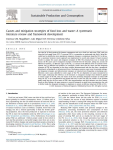
Article
One third of all food produced for human consumption ends up as food loss and waste (FLW) each year along the food supply chain (FSC). To prevent FLW, it is paramount to understand why food is being discarded and to identify the most appropriate[...]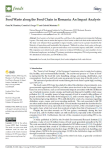
Article
Food waste is a hot topic around the world due to the significant environmental challenge it poses. The study aims to assess the impact of food waste on the food chain at the national level. The data were obtained from quantitative impact studie[...]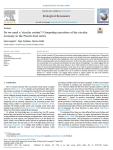
Article
How a circular economy (CE) can promote social equity remains largely unknown. We analyze how CE narratives affect interpretations of problems and actions on waste in the French food sector, particularly around the Loi Garot. We identify CE narr[...]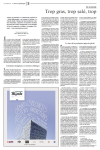
Article
Nombre de journalistes et collaborateurs réguliers du « Monde diplomatique » ont contribué à l'ouvrage « Le Nouveau Monde. Tableau de la France néolibérale » (Éditions Amsterdam), à paraître le 10 septembre. Dessinant un portrait de la France co[...]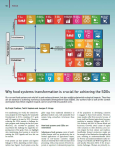
Article
Our current food systems not only fail to end malnourishment, but also exhibit substantial ecological impacts. Thus they are an obstacle to achieving numerous Sustainable Development Goals (SDGs). Our authors have a look at the context and expla[...]
Article
Food waste is a burning issue, one that is both local and global. Although most consumers hate wasting and do not intend to waste, they still end up wasting food. By focusing on routines that prevent waste rather than on waste behaviours, and by[...]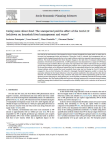
Article
Over half of the total amount of food wasted in Europe concerns household food waste which is mainly due to incorrect food management habits and behaviour. During the Covid-19 outbreak, food management and consumption habits changed dramatically[...]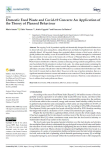
Article
M. Amato ; F. Verneau ; A. Coppola ; F. La Barbera |The ongoing Covid-19 pandemic rapidly and dramatically disrupted household behaviours in almost all areas and, among these, eating behaviours and daily food patterns have also been radically altered. All reported changes have potential effects i[...]








